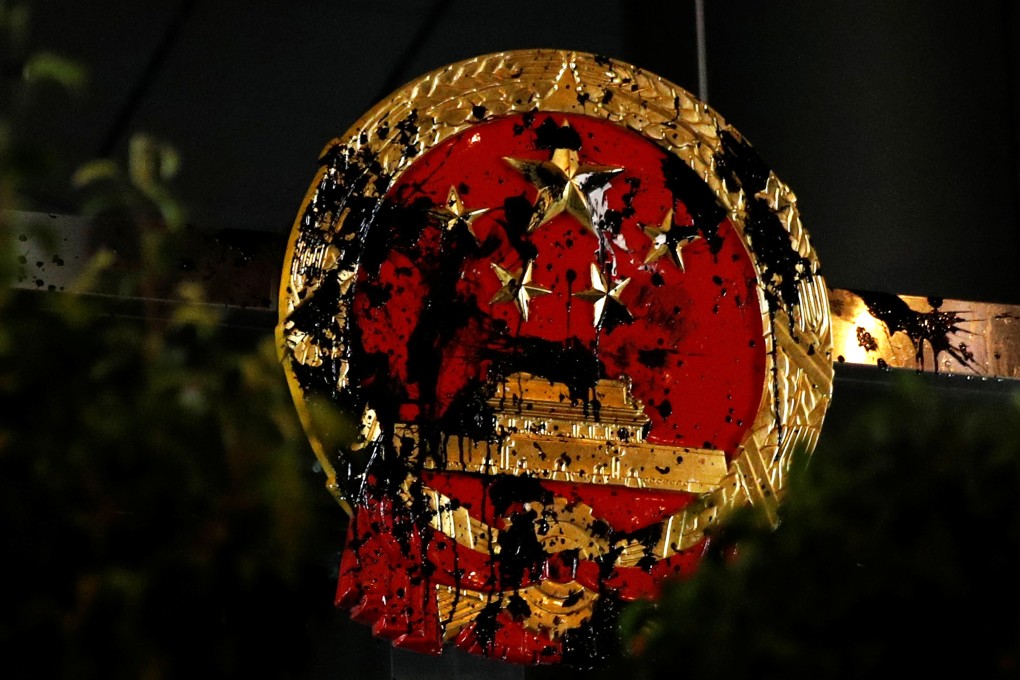Advertisement
Opinion | When bad ideas happen to Hong Kong protesters and Beijing
- Protesters in Hong Kong made a strategic mistake when they vandalised the liaison office. But over in London and Beijing, the authorities are labouring under dangerous delusions about their power
Reading Time:3 minutes
Why you can trust SCMP
0

Understand your enemy. Know your own weakness. To the protesters on Sunday, the central government’s liaison office might have seemed a suitable target, given its constant interference in Hong Kong’s affairs in defiance of the Basic Law. Attacking inanimate objects may seem preferable to attacking people, as happened in Yuen Long. Yet it was a grave error.
The liaison office and its plaque are not just symbols of the Communist Party and central government. Because they are also seen as national symbols by the majority of mainlanders who have always lived under the red flag with five stars, vandalism to them has made it that much easier for Beijing to present mass protests in Hong Kong as a foreign plot.
Meanwhile, observers should not be surprised if the party had a hand in the violence in Yuen Long. After all, this was the party behind the 1967 riots, bombings and killings that left some 50 dead. The leader of the riots was Yeung Kwong of the Federation of Trade Unions. Subsequently, Tung Chee-hwa awarded him a Grand Bauhinia Medal, Leung Chun-ying attended his funeral in 2015, and Carrie Lam Cheng Yuet-ngor sent a message of condolence praising his work.
But that 1967 mix of violence and appeals to patriotism and anti-colonialism ultimately failed, and the British colonial system would survive, indeed prosper, for another 30 years.
Whatever political skills the British then possessed, however, have since gone up in smoke, as should their illusions about their current power and their impossible dreams about a return to the glorious past. The British seizure of an Iranian tanker in Gibraltar, reportedly at the United States’ suggestion, was a dubiously legal act given the lack of United Nations sanctions on oil deliveries and unsurprisingly led to tit-for-tat retaliation from Iran, which seized a British tanker in the Gulf.
Now the very same British foreign minister, Jeremy Hunt, who competed for the right to lead Britain out of the EU, has to appeal for EU solidarity against Iran at a time when sensible EU nations are focused on limiting the damage done by US President Donald Trump’s renouncing of the nuclear accord with Iran to which the Obama administration, EU, Russia and China had been signatories.
Advertisement
